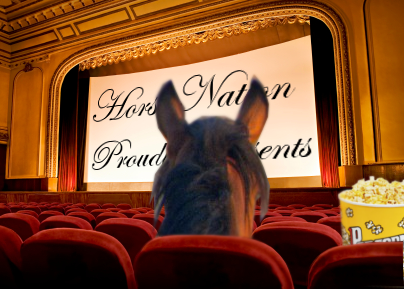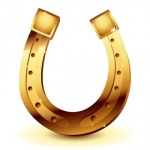
Friday Flicks: The Rider (2017)
Loosely based on the life of Brady Jandreau, The Rider gives a deep, introspective look at the cost of dreams. I watched it, and now so should you.
Starring Lakota Sioux of the Pine Ridge Reservation, The Rider is the sophomore film from independent movie maker Chloé Zhao.
The Synopsis:
“After suffering a near fatal head injury, a young cowboy undertakes a search for new identity and what it means to be a man in the heartland of America.” IMDB
The Plot:
The movie opens with a young man, Brady, waking from a nightmare and then picking surgical staples from his shaved skull… with a pocket knife. The wound beneath the removed gauze is huge. As one side character puts it later in the film, “He looks like Frankenstein.” The comment is crude, but not that far off. The filmmaker clearly wants to set the tone that this guy was hurt and hurt badly. His hand also randomly seizes, and there’s plenty of on-screen puking to solidify the fact that this character is deeply unwell.
We see Brady interacting with a Palomino named Gus, his horse trainer father coming home from an all-night bender, his autistic little sister, and a group of rowdy rodeo buddies. Throughout the interactions, Brady is introverted in a stoic James Dean kind of way. We get the impression, though, that he wasn’t always like this. The character seems resigned to live as a shadow of his former self.
Only the horse, Gus, seems to get a real emotional response from Brady in the form of long hugs around the neck and gentle care when he scratches his muzzle on a fence line.
Thirty minutes into the film, we meet Lane Scott, a longtime friend of Brady who was in an even worse accident that left him paralyzed, nonverbal, and living in a full-time care facility. The scene pushes the idea that Brady is not only trapped in his own past, but Scott’s as well. He spends most of the visit reminiscing while watching old rodeo footage of the two of them.
Realizing the family desperately needs money, Brady finds a lifeless job at the local grocery store, where he’s recognized as a “former” rodeo star by a young boy.
Meanwhile, his father decides to sell Gus. It’s easy to want to vilify the dad here, but then he says, “Gus is a part of the family, I guess it’s his turn to make a living for us.”
And then it’s simply heartbreaking. Either they sell a member of the family or they’re homeless. The scene ends with Brady praying over Gus.
“God, I just ask you to take care of Gus on his travels, Lord. Just be with him all the time and protect him. Keep him safe, God. In Jesus’ name, I pray. Amen.”
The pair have one last bareback ride at sunrise. It’s the first time Brady’s been on a horse since his accident.
Gus goes, but other horses fill the screen after. Brady starts training colts and is particularly drawn to a wild bay named Apollo. He takes his bronc saddle to a pawn shop to raise money to buy Apollo, but backs out of the deal at the last minute, unable to let go. In a rare glimpse of compassion, Brady’s dad surprises him with the horse. Training goes well, and we’re treated to some amazing South Dakota scenery.
Unfortunately, directly after the scene, Brady leans over the saddle horn and pukes. He’s pushing himself too fast and too hard, and you get the feeling that his eye is still trained on some distant future where everything is going to be okay and he’ll go back to bronc riding.
What happens? You’ll just have to watch and see!
The Critique:
This movie made me cry. It was deep and heartfelt in a way that films about damaged protagonists and the horses that heal them usually aren’t. What helps is the story, the characters, and the horses — they’re all real.
The cast consists entirely of non-professional Lakota actors playing fictionalized versions of themselves, including Brady Jandreau, who plays Brady Blackburn, who grew up riding and training horses. Director Zhao first met Jandreau in July 2014 during a return visit to the Pine Ridge Reservation, where Zhao had shot her first film, Songs My Brother Taught Me.
Jandreau’s childhood best friend, Lane Scott, plays himself, in scenes that are incredibly delicate and emotionally raw. Scott became disabled in a car accident four years before filming.
The wild horse training, specifically the join up scenes in the round pen, were real, filmed live with Brady and untamed horses over the course of two 40-minute sessions. Filming also took place at local horse sales, rodeos, and auctions for free, incorporating “all these extras, who are perfectly costumed, all these old cowboys — you couldn’t have cast and staged this,” Zhao told Filmmaker.
There were only six crew members during filming, but Zhao and cinematographer James Joshua Richards used the South Dakota landscape to full advantage. The setting and lighting are fantastic, and the camera often follows Brady into wide open pastures during the magic hour. The camera stays tight to Brady, giving us the impression of being inside his head and seeing the world through his eyes.
The story itself is a mix of western mythology laced with compassionate realism and just a touch of toxic masculinity. It reminded me of Peter Berg’s Friday Night Lights. As it was with that movie and subsequent TV show, you get the feeling that these young men do love their chosen sport, but, due to financial circumstances or societal expectations, they’re also trapped in it.
The final scenes of the movie and the metaphor that is presented — which I won’t divulge because of spoilers, but just know it’s really, really heartbreaking — are extremely thought-provoking.
The movie’s only true fault is that there’s simply not enough of it. I almost wish this had been a TV-limited series so that I could sit with these characters a little longer. In particular, I wanted to know more about Brady’s tumultuous relationship with his father, but also about the Palomino, Gus. Why was the horse so important to Brady? I have the feeling that maybe it was connected to his deceased mother or best friend, Scott, especially after Brady has him imagine riding “Old Gus” during his rehab exercises.
But that’s just nitpicking. Because after the first watch, I liked the film. And after the second watch, I loved it.
I give The Rider four out of four Golden Horseshoes.














